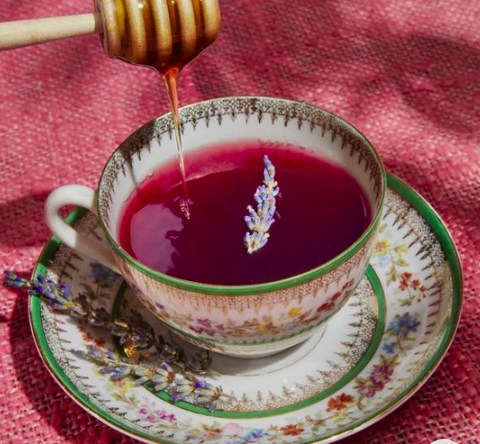Liver Support
Helpful tips for supporting your liver, the organ responable for natural detoxification, so it supports you back!
The liver plays a vital role in our overall health, performing a variety of essential functions within the body. It is responsible for producing bile, converting thyroid hormones, activating enzymes, and metabolizing fats, proteins, and carbohydrates. Additionally, the liver stores important nutrients and carries out many more crucial tasks.
In my work with clients, it is common to observe that many symptoms and root causes of health issues are linked back to the liver's condition. Given the liver's significance in facilitating various bodily processes, it can easily become overstressed or sluggish. Symptoms such as hormonal imbalances, digestive troubles, constipation, fatigue, brain fog, and acne may indicate that liver function is compromised and should not be overlooked.
To promote liver health, consider incorporating a few simple practices into your daily routine. Here are some easy steps to show your liver some love:
Enjoy a raw carrot (or many) each day.
Limit alcohol intake.
Incorporate liver-supportive drinks, such as lemon water or dandelion tea.
Try using castor oil packs to aid liver function.
Engage in gentle movement each day.
Schedule regular visits to the sauna, as sweating can benefit liver health.
Prioritize eating within 30 minutes of waking and continue to eat every 2-3 hours afterward (note that intermittent fasting may strain the liver).
By adopting these habits, you can support your liver and your liver will support you back!
Women in Sauna
Sleep Tea Recipe
I wish more people knew about the benefits of sleep. It is the single most important factor for all vital functions of the body. If we were to stay awake without sleep we would last only 11 days. During sleep is where our bodies and our brain heal and repair. All-in-all, we are asleep about 1/3 of our lives. And some of us aren’t getting it (hello college students, mothers in the third trimester and postpartum, the chronically stressed person).
Why are we missing sleep? stress, environmental factors such as blue light from our screens, hormonal dysfunction overstimulation. etc! I often tell others without my 8 hours, i’m not all myself. This is hardly an exaggeration!
Specifically, women in their third trimester of pregnancy and in the first 42 days postpartum are subject to all sorts of hurtles to jump with regards to their sleep. Sleep hurtles? In third trimester baby is moving and grooving and the tummy is expanding (how does it have all this room for a whole baby?!) and postpartum hormones are going from fostering whole baby inside to healing from making said baby and not mention baby’s sleep rhythms are omprosed of many many many sleep and wake windows. Which means we are not sleeping through the night… so when we do sleep the sleep is precious and needs to be high quality.
Did you know that sleep is the #1 protective factor agains PMADs (Perinatal Mood and Anxiety Disorders)
Follow here for Postpartum Support International Website
But we can help to reduce the factors that throw off our sleep. And we can harness the natural rhythms we have, go back to the roots of what helps our bodies to function. And if I know anything from my experience, the body knows how to function optimally if we allow it.
Many ancient cultures such as the Native Americans and in Ancient China (think Traditional Chinese Medicine or TCM),the power of herbs to help all kinds of ailments, sleep quality notwithstanding
This tea will help you not only fall asleep but stay asleep.
Sleepy Tea
Here is a nourishing tea recipe I give especially to soon-to-be mamas!
Ingredients:
Skullcap
Passionflower
Chamomile
Lavender
Milkey oats
Hops
use equal parts of each herb. 1 teaspoon per one cup of water.
Steep in water. allow to steep for up to 20 mins.
ps this tea is no substitute for medical advice
Sleep well, my dear!
<3 Natalie
Placenta Encapsulation and Other Holistic Uses for Placenta
A brief history of Placenta Use
In the realm of the womb, the placenta nourishes supreme as a haven of life and growth. This organ weaves together the mother's womb and the baby, nurturing the seed of life until it blooms into a wondrous being.
As the baby triumphantly emerges into the world, the placenta remains, offering sustenance to the mother.
In the ancient traditions of Traditional Chinese Medicine, this afterbirth us considered a warming herb, imbued with sacred properties of healing.
For thousands of years, the placenta has been a bearer of nourishment, not just for the baby, but also for the mother. Stories abound of its legendary properties, with tales of its hormonal blessings and rich iron content. In many cultures, it is part of a sacred ritual, revered as a source of vitality and strength.
While the scientific community has yet to fully explore the depth of the placenta's nourishing powers, stories of its wonders continue to be passed down from generation to generation. Its mystical properties continue to be celebrated, inspiring awe and wonder in all who learn about it.
Some mothers do not have the desire to consume the placenta but wish to see it after birth. If this is you, make sure to communicate this to your OB, Midwife, or Nurse, and/or Doula. Alternatively you may request a picture of the placenta as a keepsake.
You can also donate the placenta: The stem cells here can be beneficial for reconstructive procedures, healing of wounds and burns, ocular procedures, spinal surgeries, and other medical needs. Donation of placenta does not harm the baby in any way. If donation is your intention, make sure to talk to your healthcare provider in advance. Donations take place through an accredited tissue donation organization. paperwork will have to be completed in advance. Note that the parents can also donate other tissues such as the umbilical cord tissue, amniotic membrane and amniotic fluid. Here is a link to learn more at Donate Life America.
Some mothers choose to have their placenta encapsulated. Consuming your placenta can be very beneficial for you and your baby.
What are the TOP benefits that advocates report from consuming their placentas?
Increased energy and less fatigue
Increase in breastmilk production
Higher iron levels
Decreases postnatal bleeding, encourages healing and recovery
Decrease in ‘baby blues’, postpartum depression, and postpartum anxiety
Lower risk of postpartum hemorrhage
Hormonal regulation
Can provide natural post-birth pain relief
Increased energy and libido
Improved quality sleep
Increase in a stress-reducing hormone, CRH (Corticotrophin Releasing Hormone)
Increased production of oxytocin (the ‘love hormone’) which can promote bonding with your baby
Natalie offers this service and uses the Traditional Chinese Medicine (TCM) method. First she washes the placenta to remove any blood clots. Then she steams the placenta with ginger and lemon. Then she cuts the placenta into small pieces for drying in a dehydrator at 160 overnight for 10 up to 12 hours depending on the size of the placenta. The second day, she takes the dehydrated planeta pieces and grinds them into a fine powder and then encapsulates them into vegetarian capsules. This produces anywhere from 80-150 capsules depending on the size of the placenta. Capsules are contained in a jar and consumed daily.
Natalie’s encapsulation process is different from others. She comes to your home to encapsulate and is available for any Q&A and support the parents might have. First the parents pick up placenta with styrofoam carrying case provided by Natalie. Parents take the placenta home where Natalie will join. Natalie sanitizes and sets up in your kitchen. She needs a sink and the counter space next to the sink. All equipment will be provided by Natalie. The entire process will occur over the course of two days. Natalie is at the home 2 hours on the first day and 2 hours on the second day totaling a 24 hour process to encapsulate.
Other ways to use placenta:
Tinctures:
Salves:
Placenta Art:
Placenta Chocolates:
Natalie received her Postpartum Placenta Encapsulation Specialist training through ProDoula. We maintain a sanitized workspace according to the requirements of APPA and Bloodborne Pathogens Training.
Natalie’s Recommended Reading
Here is a list of books I have found moving and pivotal.
On Philosophy:
Man’s Search for Meaning- Victor Frankel
The Upanishads-
Tao Tae Ching- Lao Tzu
I am That- Nisargadatta Maharaj
Bhagavad Gita
Atlas Shrugged- The Fountainhead
Walden- Henry David Thoreau
For the Soul:
The Little Prince- Antoine de Saint-Exupéry
The Alchemist- Paulo Coehlo
On Building Your Dream Life:
4-Hour Workday - Timothy Ferris
Reality Transurfing- Vadim Zealand
12-Rules for Life- Jordan Peterson
Mastery- Robert Greene
On the Feminine:
Goddesses: Mysteries of the Feminine Divine- Joseph Campbell
The Sophia Code- The Dragon Tribe
The Fifth Vital Sign- Lisa Hendrickson Jack
Women Who Run With Wolves- Clarissa Pinkola Estes
Dear Lover- David Deida
On Psychology:
Prometheus Rising- Robert Anton Wilson
The Righteous Mind -Jonathan Haidt
The Happiness Hypothesis- Jonathan Haidt
Fortitude- Dan Crenshaw
Health:
Breathe- James Nestor
Why We Sleep- Mathew Walker
Deep Nutrition: Why our Genes Need Traditional Food- Catherine Shanahan, Luke Shanahan
Perfect Health- Deepak Chopra







